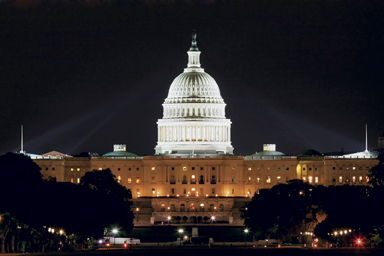Public Policy Analysis & Opinion
By Kevin P. Hennosy
PRIMARY DOMAIN AND OSTENSIBLE REALITY
Law professor pens a provocative article
University of Minnesota Law School Professor Daniel Schwarcz penned a provocative article that explores the role of the National Association of Insurance Commissioners (NAIC) in American insurance regulation.
Schwarcz’s article ran in the University of Connecticut Insurance Law Journal under the title “Is U.S. Insurance Regulation Unconstitutional?”
It is important to note that the term “unconstitutional” as used here does not refer to the 1787 U.S. Constitution, as we shall see, because that document does not receive consideration in the professor’s article. Instead, Schwarcz focuses on state constitutional constructs, which the activities of the NAIC appear to disturb. The article provides a plethora of well-researched examples of NAIC’s actions that may do harm to the constitutional frameworks in the several states.
After a 70-year special-interest lobbying campaign based on “alternative facts,” blue smoke, and mirrors, a layman might be confused into believing that insurance regulation is a “state prerogative.”
The professor argues that the NAIC—a private corporation chartered in 1999—does not receive the public oversight necessary to comply with state constitutional tenets. In short, he writes, no private entity should receive a public charge without submitting to public oversight, including direct submission to the power of legislative committees and the administrative law courts.
Schwarcz decries the “dynamic incorporation” of NAIC work products into state law, where they remain part of the law even if they change materially over time.
The NAIC’s history of dynamic incorporation began with the unincorporated association of state regulatory officials that pre-dated today’s corporation. For example, in 1871 regional life insurance and fire insurance companies asked a corrupt New York insurance superintendent to convene a meeting of officials to “harmonize” insurance law and regulation. The then-National Convention of Insurance Commissioners’ first major harmonization project concerned the annual financial statement blanks required by states–even after regulators amended the “convention blanks.”
Schwarcz also opines that the NAIC uses its Financial Regulation Standards and Accreditation Program (FRSAP) to compel or coerce states to adopt NAIC model laws, regulations, guidelines, and publications. Through this intimidation, centered on a threat that “accredited states” will not accept financial examination reports from non-accredited states, the NAIC accumulates both power and profit.
Schwarcz concludes that an interstate compact for insurance regulation could address these shortcomings in the state-based system and provide public oversight of the NAIC. He proposes that the compact establish a commission of state legislators or judges who would be empowered to police NAIC actions.
The NAIC will argue that none of these products or activities meets the criterion of being “regulation”; Schwarcz makes a convincing argument to the contrary. What he does not mention is that NAIC work products generally depend on behind-the-scenes work by one faction of the insurance sector or another, which often results in ignoring public interests and awarding advantage to those factions.
Primary domain
As a confirmed geek, I enjoy following Schwarcz’s legal analysis and political opinions. Other than me, the professor is one of the few scribblers who might recite from Franklin D. Roosevelt’s signing statement for the McCarran-Ferguson Act at the drop of a hat. This tendency does not result in the addition of one’s name to many holiday party lists, but for me it encourages an awkward fan-boy status.
So I was surprised and intrigued when I read the law review article and saw the following sentence
used to begin both the abstract and the body of the article: “Insurance regulation is ostensibly the primary domain of the states.”
Are you okay, Professor? Has the Great State of Minnesota legalized recreational pot? According to the good people at Google, law-abiding Golden Gophers cannot yet “legally toke.” So, we will assume in good faith that nothing is going on here. Just move along.
Of course, after a 70-year special-interest lobbying campaign based on “alternative facts,” blue smoke, and mirrors, a layman might be confused into believing that insurance regulation is a “state prerogative.” Hamilton and Madison looked at interstate commerce and gave Congress jurisdiction over it—except for insurance. Some lobbyists will testify to something close to that misreading of history; however, as one of the standards of the American Songbook warns, “Smoke gets in your eyes.”
Schwarcz is no layman when it comes to insurance law and public policy, and readers of his previous work appreciate that he knows his history and case law. Under the U.S. Constitution as interpreted by the U.S. Supreme Court and incorporated into law by Congress, the primary responsibility for regulation of the business of insurance rests at the federal level. In the McCarran-Ferguson Act Congress lent this jurisdiction to the states.
Ostensibly stated
Badly shaken by this apparent misstatement by a wise man of insurance public policy interpretation, this commentator fell into a funk. I visited an Army-Navy store and bought a declassified publication on “intelligence content analysis.” Following recommendations therein, I used a razor blade to cut up several copies of the law review article. Using a sorting formula that is too complex to recount here, I pasted the scraps to a basement wall where different-colored strings connected individual words and phrases. This deliberate effort achieved nothing.
So I poured a slug of bourbon and picked up a clean copy of the article. Perhaps it was a magic power contained in the corn-based serum produced in a Kentucky county that delivered an enlightened result.
The adverb “ostensibly” plays an effective role in helping one understand the professor’s statement. Ostensibly means “apparently or purportedly, but perhaps not actually.”
Ahhhhhhh! Say no more! Say no more! Nudge, nudge! I am with you, Professor.
Loaned authority
As a relatively well-informed layman, I believe Schwarcz overshot his landing field on this jump. The applicable prohibitions against the transfer of authority over insurance rest at the federal level.
Because in 1944 the U.S. Supreme Court opined that the business of insurance is interstate commerce, the Commerce Clause of the Constitution rests primary jurisdiction over insurance with the Congress.
In early 1945, at a time of world war and facing pressure from state officials who feared insurers would keep a threat to withhold their premium tax payments, Congress made a limited and contingent loan of authority over insurance to the states through the McCarran-Ferguson Act.
The conference committee that finalized the “loan agreement” placed restrictions on how the recipients could use the proceeds. First, the loan instrument did not transfer authority for enforcing violations of the most egregious anti-competitive activities then prevalent in the insurance sector. Second, McCarran-Ferguson required the states to affirmatively use the loaned authority in order to hold it. To the extent that the business of insurance is not regulated by state law, Congress denies or recalls state jurisdiction over insurance. Third, Congress retained the power to recall all or part of the loaned authority to the states through statutory enactment.
Senator Joseph O’Mahoney, who brokered the act on behalf of the White House, opined: “Nothing in the proposed law would authorize a State to try to regulate for other States, or authorize any private group or association to regulate in the field of interstate commerce.”
Even arch-conservative ideologues tend to adhere to stare decisis (“the decision stands”)–current decisions built on past decisions. The Supreme Court employed the quotation from Senator O’Mahoney in its decision in Federal Trade Commission v. Travelers Health Association (1960).
The NAIC’s activities appear to run counter to the prohibition against allowing “any private group or association to regulate in the field of interstate commerce.”
If the states held primary domain over the business of insurance, Congress would have had no reason to enact McCarran-Ferguson. If one wants to write about the constitutionality of insurance regulation, one should begin with the U.S. Constitution and federal law.
Compact dreams
I break with the professor when he calls for an interstate compact.
The federalist framers of the United States wrote a constitution to establish a nation. The failures of compact federalism, or confederation, led them to call for the Constitutional Convention; they recognized, however, that not all multi-state issues were worthy of treatment by the federal Constitution. For those non-national interstate issues where the public interest demanded coordination, the framers included the Compact Clause in the Constitution.
Interstate commerce is not one of those issues, and insurance is interstate commerce.
In two areas of insurance regulation the NAIC has conjured up interstate compacts, which operate without public oversight and do not even comply with public record laws. If either of the compacts was subjected to court challenge or congressional inquiry, it likely would fail to meet the constitutional tenets that govern interstate compacts.
The professor’s article offers another model to follow: the federal delegation of authority to the Financial Accounting Standards Board (FASB) to set Generally Accepted Accounting Principles (GAAP). The FASB derives its authority from federal law and receives active public interest oversight from the Securities and Exchange Commission (SEC)
“Although the SEC has direct authority to overrule FASB, it generally influences FASB decision making more subtly by using suggestions and the implicit threat of a veto,” Schwarcz writes.
During the early 1990s, when public confidence in private insurance companies was shaken by a series of financial failures, some policy wonks suggested federal incorporation of the NAIC, which would subject it to congressional oversight and federal public records and ethics rules.
The author
Kevin P. Hennosy is an insurance writer who specializes in the history and politics of insurance regulation. He began his insurance career in the regulatory compliance office of Nationwide Insurance and then served as public affairs manager for the National Association of Insurance Commissioners (NAIC). Since leaving the NAIC staff, he has written extensively on insurance regulation and testified before the NAIC as a consumer advocate.






